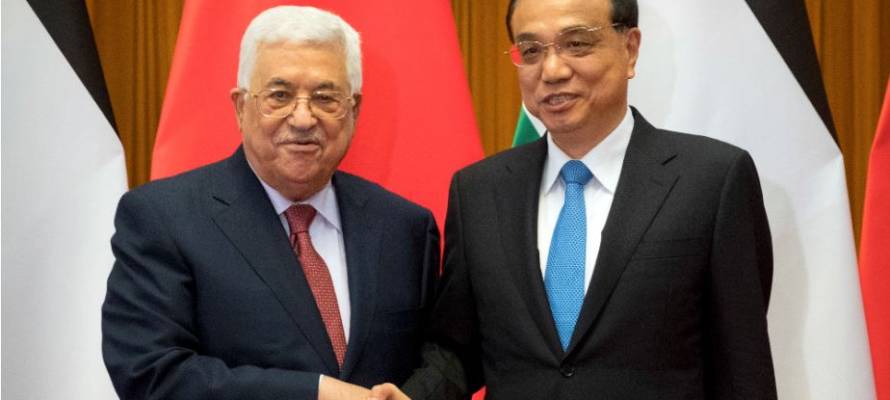Palestinian Authority declares support for Chinese regime as tensions deepen between Washington and Beijing.
By Ben Cohen, The Algemeiner
The Palestinian Authority (PA) on Tuesday declared its full support for the People’s Republic of China amid renewed tensions between Beijing and Washington, DC, over the visit of U.S. House Speaker Nancy Pelosi to Taiwan.
In a statement carried out by the official PA news agency WAFA, the PA “affirmed its position supporting the sovereignty, territorial integrity and the unity of the People’s Republic of China.”
It stated that the Palestinians held to a “longstanding position supporting the friendly People’s Republic of China and its sovereignty, territorial integrity and fully respecting the One China Policy principle.”
The “One China” policy refers to Beijing’s insistence that the Chinese Communist Party is the sole sovereign authority in China, which would include the island of Taiwan, currently governed as a multi-party democracy independent of Chinese rule.
The PA added that it supported “halting any actions that run contrary to the One China Policy principle while affirming China’s right to defend its sovereign, security and development interests.”
The PA’s statement was issued as Pelosi touched down in the Taiwanese capital Taipei.
“Our congressional delegation’s visit to Taiwan honors America’s unwavering commitment to supporting Taiwan’s vibrant democracy,” Pelosi said in a statement shortly after landing. “America’s solidarity with the 23 million people of Taiwan is more important today than ever, as the world faces a choice between autocracy and democracy.”
China – PA Mutual Support
China’s ruling Communist Party regime has historically been supportive of the Palestinian struggle against Israel. During Mao Tse Tung’s long rule following the end of World War II, the Chinese Communists cultivated close ties with various Palestinian factions including PA President Mahmoud Abbas’s Fatah organization.
During the 1990s, as China struck lucrative commercial and trading relationships with the U.S. and other western nations, Bejing’s policy towards Israel softened, with diplomatic relations established in 1992.
China has remained a bastion of political support for the Palestinians at the UN. Addressing the UN Security Council last week, the deputy chief of the Chinese mission to the UN, Geng Shuang, urged “more active and vigorous actions on the Palestinian issue” as he protested that the “legitimate rights of the Palestinian people have been continuously violated” by Israel.
The Palestinian leadership has responded in kind, including by declaring its support for Beijing’s repression of the Uyghur Muslim minority in the north-western region of Xinjiang, which many states and human rights organizations have termed a genocide.
In July 2019, the PA added its signature to a letter that lavishly praised the Chinese regime for its “remarkable achievements in protecting and promoting human rights through development,” going on to assert that democratic states should “refrain from employing unfounded charges against China” by approaching the Uyghur human rights emergency “in an objective and impartial manner … with true and genuinely credible information.”
Other states to endorse the letter included Venezuela, Iran, Cuba and Syria.
One year later, the PA similarly supported China’s crackdown in Hong Kong, joining 52 other UN member states in backing Beijing’s national security law, which grants the government broad powers to suppress pro-democracy protests.
